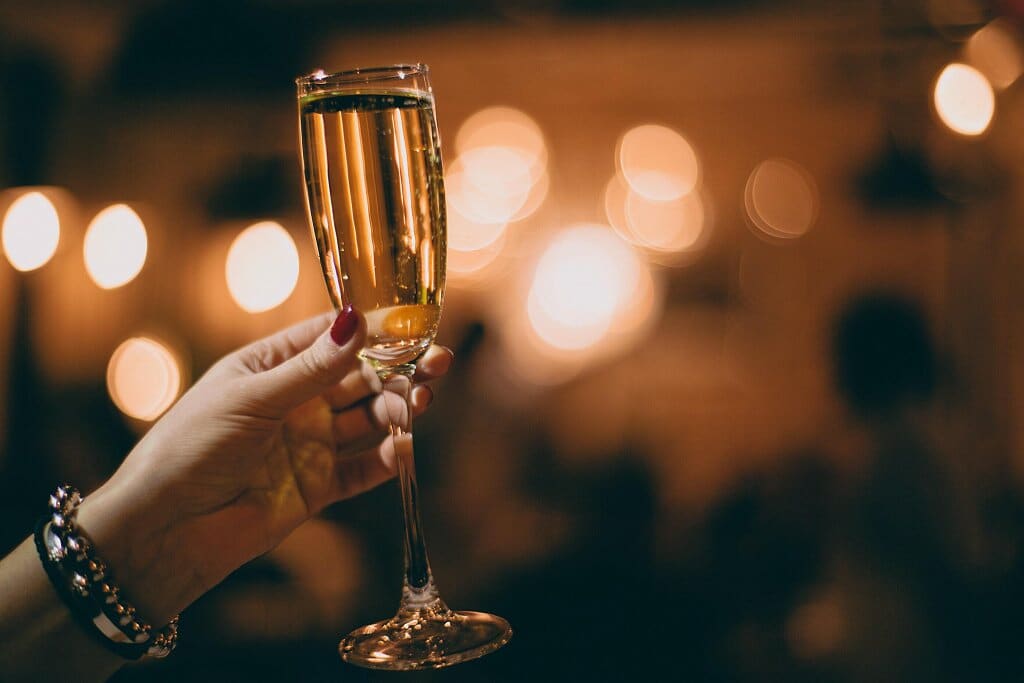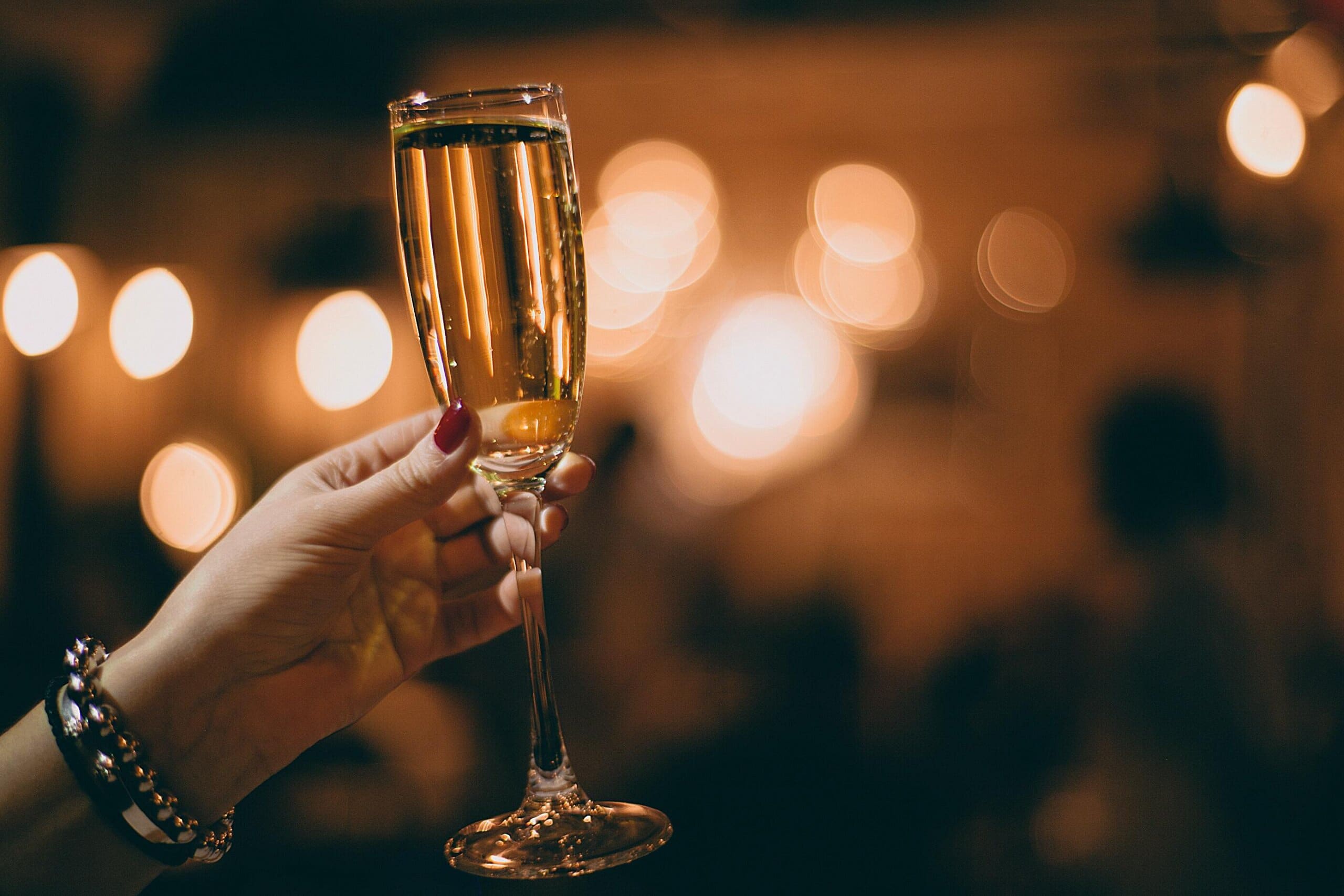Dry January is the UK’s one month alcohol-free challenge. In recent years, it has become an annual tradition, with more Brits choosing to stop drinking. Last year, 1 in 12 Brits took part in Dry January. There are plenty of health benefits for doing so, including improved sleep quality.
In fact, moderate amounts of alcohol (two servings over one day for men, or one serving for women) can decrease your sleep quality by a staggering 24%. With high amounts impacting sleep by up to 39%!
With that being said, MattressNextDay are sharing just how reducing alcohol for one month can improve your sleep, along with other benefits in the bedroom. Plus, tips on how to start Dry January if it is your first time taking part in the challenge.
Last year, 1 in 5 Brits failed Dry January within the third week
Of the Brits taking part in Dry January, 1 in 5 (20%) had a drink within the third week in January, highlighting how difficult it can be. However, searches for ‘Dry January’ increased by 200% last year, suggesting how the trend is gaining in popularity.
But, did you know, there are numerous health benefits to staying sober at the start of the year?
Eight health benefits of doing Dry January

1. You can sleep better, and longer
A normal sleep cycle consists of four stages: three stages of non-rapid eye movement (NREM) and, finally, one stage of REM (rapid eye movement). These cycles repeat in this order each night, and last around 90-120 minutes So, four to five cycles for eight hours sleep.
But, alcohol can suppress REM sleep in the first two cycles. This is because alcohol can act as a sedative, making you fall into a deeper sleep quickly. So your sleep is out of order and imbalanced. You’ll have more slow-wave sleep and less REM sleep (which is the stage you are most likely to dream), decreasing your sleep quality.
Likewise, as alcohol affects your REM sleep and disrupts your sleep stages, you are more likely to experience insomnia.
Additionally, hand in hand with better sleep comes better moods, and more consistently positive moods.
2. It can make it easier to get going in the bedroom
Alcohol not only affects your sleep, but your penis too. That’s because alcohol decreases the blood flow to your penis, meaning that you might not be able to get an erection. If you do manage to get one (after more work than normal), alcohol reduces the intensity of your orgasm, meaning it won’t be nearly as nice as if you were sober.
3. It will help improve you and your partner’s performance
We know that alcohol reduces blood to your penis. So, it means difficulties getting and then maintaining that erection, impacting your performance in the bedroom.
The same also goes for women. They may experience reduced lubrication and find it harder to reach orgasm, reducing the intensity and their performance overall.
4. Your skin can clear up and get firmer
Alcohol can spell bad news for your skin. It breaks down collagen, which we need to keep our skin firm, so it can speed up the signs of ageing. Add to that, the lack of vitamins due to drinking can give your skin a grey, shallow appearance.
A lot of people also fall asleep with their makeup on after a night of drinking. But, if you do that, you’ll clog your pores and trigger acne. So, less wrinkles and a better complexion can go hand in hand with limiting your alcohol intake.
5. Your body absorbs more vitamins
Studies have found that excessive drinking can lead to bodies lacking in ‘amino acids, proteins and certain vitamins’. Alcohol prevents nutrients travelling into our bloodstreams, which could seriously begin to impact our health.
While we can all make an effort to eat well, it’s not going to help your body absorb essential vitamins if you are drinking heavily. So, taking a month break can not only help your skin, but you’ll feel the difference in your body too.
6. Less alcohol will boost your immune system
Fighting off viruses has never been more important. But, did you know that alcohol can impact your immune system?
A study discovered that heavy drinking depletes your white blood cells, which are essential to fighting infection. This is noticeable in the hours after drinking. So, taking that break can help get your immune system fighting fit for the onslaught of winter colds and viruses.
7. Your memory will get better
Have you ever woken up with very little recollection of the night before, after drinking? Well, that’s because alcohol affects your short-term memory. It slows down how the nerves communicate in the hippocampus, which plays a vital role in helping you form and remember those memories.
This can happen to someone after five or more drinks, and impacts the person’s ability to remember the night before.
8. You’ll be less inclined to keep drinking after January
Once you’ve hit the one-month mark and started to recognise some of the health benefits, you are more likely to want to keep it going. Remember, it can take a few months to see significant health rewards.
Four ways to successfully kickstart your Dry January campaign
If you are looking to get started, there are some tips you can follow to make the month that much easier.
1. Speak to your family and friends and ask for support. The people closest to you can really help you keep on track and reach your goals for the month. Plus, if you explain that you are doing Dry January, you may feel more comfortable in saying no to social events.
2. List your goals. This is always essential when you are taking up a new challenge. What is it that you want to accomplish by the end of the month? Is it donations? Health benefits? Either way, writing them down means you are more likely to reach those goals.
3. Focus on exercise. One way to relax and get enjoyment after the month is to start exercising. It doesn’t have to be high-energy exercise. Something as simple as a short walk can help you relax. And, it gets you out of the house and breathing fresh air.
4. Keep track of your drinking. If you do end up having one drink, don’t get upset and feel like you have to stop, as that will significantly impact your ability to reduce your intake. Instead, just keep track and it can be a great motivation tool for the rest of the year.
Check out our Snooze News section for more advice, and if you are drinking this January, read our tips for avoiding a hangover!


